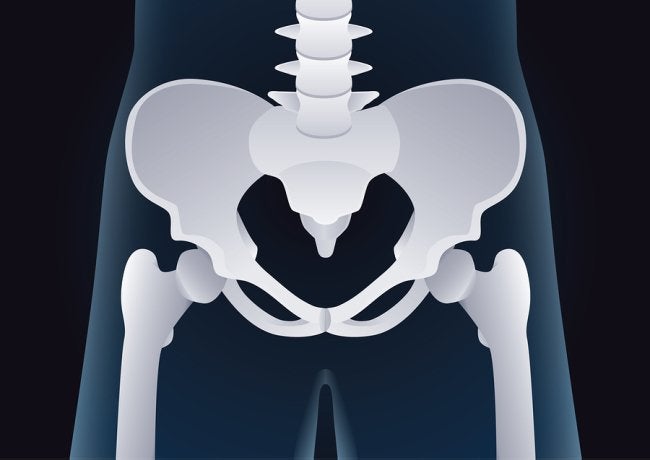-
Signs of a Kidney Infection

Urinary tract infections (UTIs) can sometimes affect one or both kidneys, particularly if these infections are not met with early treatment. If the kidneys do become involved, then prompt UTI treatment is critical to prevent additional complications. Rarely, these complications can include death. Urinary tract infections that involve the kidneys may be indicated by the need to urinate more frequently than usual, painful urination, and abdominal pain.
Patients may experience nausea and vomiting, and they may develop a fever and chills. Pain can develop in the back, side, and groin. It’s important to note that certain patients may not display these typical signs. Elderly patients may only display confusion or confused speech. Children younger than two years of age might only display a high fever.
Patients who develop urinary tract infections in the Nashville area can turn to Urology Associates, P.C. for expert treatment. Call us at (855) 901-1338 to request an appointment with one of our highly trained urologists.
-
Understanding the Risks and Symptoms of Penile Cancer

Cancerous cells are abnormal cells that grow in an uncontrolled manner. Eventually, the mass of abnormal cells can form a tumor. Cancerous cells can also spread well beyond their point of origin, making treatment more complicated and less likely to result in a favorable outcome. For these reasons, it’s important for men to understand their risk factors of cancers such as penile cancer , which originates at the penis. Another cornerstone of being a proactive patient is learning to recognize the potential signs of a urology health issue and seeking medical evaluations promptly.
Risk Factors
Risk factors can refer to anything that raises the risk of developing a certain disease. It’s important to bear in mind that having one or more risk factors of penile cancer does not mean that this cancer will definitely develop. Similarly, it’s possible to develop penile cancer without having risk factors for it. That said, knowing your risk factors can be helpful because this knowledge may guide your lifestyle choices and medical care. Smoking, for example, is one risk factor of penile cancer. Penile cancer is also associated with human papillomavirus (HPV) infection, HIV/AIDS infection, and a combination treatment for psoriasis that involves a medication and UV light treatment. Men who are uncircumcised are also at a higher risk of penile cancer.
Signs and Symptoms
If any unusual changes of the reproductive organs are noted, it’s advisable to seek a medical evaluation. Even if these abnormalities are not caused by penile cancer, they may be indicative of another medical condition that requires treatment. Men with penile cancer will most often notice changes in the skin on the penis, usually on the tip, but sometimes on the shaft. A lump, reddish rash, bleeding sore, and thickened or discolored skin could indicate penile cancer. Other signs include small bumps, bluish-brown growths, and swelling. If the cancer has already begun to spread, the lymph nodes in the groin area may become swollen.
Receiving a cancer diagnosis is devastating, but there is specialized cancer treatment available in Nashville. At Urology Associates, P.C., our urology team is committed to applying the latest medical technology and techniques to support optimal outcomes for our patients. Patients diagnosed with penile, testicular, or prostate cancer can contact us at (855) 901-1338 to request a consult.
-
Opening Up About OAB [INFOGRAPHIC]
Overactive bladder, or OAB, is an extremely common condition that affects millions of men and women in America. OAB is marked by urgency, urge incontinence, an increase in the frequency of urination, and waking at least two times per night to urinate. It can affect every part of your life and lead to social isolation and anxiety. Fortunately, your urologist has a number of remedies that can resolve your OAB and help you get back to living your life. Find out more about OAB in this Infographic from Urology Associates, P.C . Our urologists in Nashville treat a wide range of conditions, from OAB to UTIs and low libido. If you’re experiencing symptoms of OAB, don’t suffer in silence. Schedule a consultation with one of our specialists to find out how we can help. Please share this information to help others living with OAB and its troubling symptoms.

-
The Link Between PSA Levels and Prostate Cancer
In men, the prostate gland produces a protein called prostate-specific antigen (PSA). A PSA test measures the level of this protein in a man’s bloodstream. This is clinically significant because prostate cancer can be associated with elevated PSA levels. However, it’s important to note that many men with prostate cancer do not have elevated PSA levels and many men with high PSA levels do not have prostate cancer. A urology specialist will evaluate each patient on a case-by-case basis.
You can learn more about PSA levels and prostate cancer by watching this video. This urology specialist explains the other exams that a man might have when prostate cancer is suspected, such as a digital rectal exam and a prostate biopsy.
If you have been referred to a prostate cancer specialist and you live in Nashville, you can call Urology Associates, P.C. at (855) 901-1338. Our urology team can answer any questions you may have about your elevated PSA levels .
-
What Causes Pelvic Organ Prolapse?

Pelvic organ prolapse (POP) is a common urologic condition in which one of the pelvic organs moves out of position. For example, the bladder may drop lower and push against the vaginal walls. POP can cause uncomfortable symptoms, including pain or pressure in the area, incontinence, and constipation. If you suspect you might have POP, consider visiting a urology specialist to determine the underlying cause and learn about your treatment options.
Childbirth
Childbirth is among the most common causes of POP. To understand how childbirth can cause POP, it’s helpful to have a basic understanding of the anatomy in this area. POP can affect one or multiple organs, including the bladder, vagina, uterus, and rectum. These pelvic organs are normally held in place by the pelvic floor muscles. But these pelvic floor muscles can sometimes be stretched and weakened, which impairs their ability to hold the organs in place. Childbirth is a traumatic event that requires considerable straining and places significant pressure on the abdomen. The strain can weaken these crucial muscles.
Hysterectomy
Some women who undergo a hysterectomy will later develop POP. A hysterectomy is a surgical procedure to remove one or more of the pelvic organs such as the uterus. In the absence of these organs, the structures that are left intact may shift out of place. Although POP is not inevitable after a hysterectomy, this surgery is certainly a major risk factor for it.
Obesity
Not all cases of POP can be linked to childbirth and hysterectomies. The pelvic organs may also shift out of place due to the pressure exerted on the region by excessive body weight. Specifically, obesity results in increased pressure to the pelvic floor muscles, which can allow hernias to form. In other words, the bladder or other organs may prolapse into the vaginal wall.
Urology Associates, P.C. provides compassionate and confidential care for women with urologic and sexual health conditions, including pelvic organ prolapse. Call our office at (855) 901-1338 to request an appointment with a urologist in Nashville. Additional health information is available on our website.
Recent Posts
categories
- Uncategorized
- Bladder Cancer
- Women's Sexual Health
- MonaLisa Touch
- Urology
- Urologist
- Erectile Dysfunction
- Kidney Cancer
- Incontinence
- Prostate
- MonaLisa Touch Laser Treatment
- Kidney Stones
- Urinary Tract Infections
- Event
- Sexual Dysfunction
- Testicular Cancer
- Prostate Cancer
- Urology Surgery Center
- urinary incontinence
- vaginismus
- noncoital pain disorder
- Hypoactive Sexual Desire Disorder
- Infographic
- provenge
- Xofigo
- robotic surgery
- hormone replacement
- diabetes
- renal cell carcinoma
- pelvic pain
- hematuria
- sexual health
- chronic testicular pain
- premature ejaculation
- Men's Health Clinic
- Dr. Melvin Seard
- Interstitial Cystitis
- vasectomy
- overactive bladder
- vaginal atrophy
- nocturia
- bladder infections
- urethral strictures
- Acute Epididymitis
- low sex drive
- circumcision
- pelvic floor dysfunction
- Peyronie's Disease
- prostatitis
- female sexual dysfunction
- varicocele
- difficult urination
- low libido
- PSA levels
- male fertility
- penile prosthesis
- prostatic intraepithelial neoplasia
- male infertility
- estrogen levels
- nurse navigator
- stress urinary incontinence
- vaginal yeast infection
- elevated psa
- painful sex
- adult circumcision
- epididymitis
- OAB
- kidney infection
- penile cancer
- pelvic organ prolapse
- Vasectomy Reversal
- bone health
- cystectomies
- clinical trials
- bloody urine
- Advanced Therapeutic Center
- WISH MedSpa
- neurogenic bladder
- WISH Team
- prostate biopsies
- BPH
- fecal incontinence
- lithotripsy
- osteoporosis
- kidney cysts
